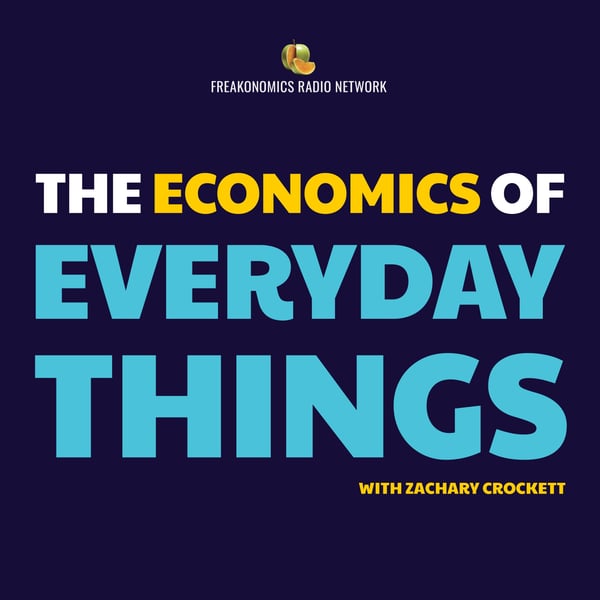28. Horseshoe Crab Blood
The Economics of Everyday Things
Freakonomics Network
4.8 • 1.2K Ratings
🗓️ 11 December 2023
⏱️ 14 minutes
🧾️ Download transcript
Summary
Transcript
Click on a timestamp to play from that location
| 0:00.0 | Every year in late spring, America's Atlantic coastline hosts one of the animal kingdom's wildest orgies. |
| 0:17.6 | The sandy shores are taken over by thousands of horseshoe crabs, |
| 0:22.2 | who mate and lay clusters of eggs. |
| 0:25.4 | This feverish lovemaking might be part of why the species is so resilient. Horseshoe crabs have been around for around 450 million years. |
| 0:37.0 | They were here before the dinosaurs |
| 0:39.0 | and survived a mass extinction that wiped out 90% of life on earth. But lately a new species has |
| 0:48.7 | joined the party. Humans who are quite literally out for the horseshoe crab's blood. |
| 0:56.0 | They have this somewhat magical blood. It's used to do a lot of our pharmaceutical testing, everything from COVID vaccines to |
| 1:05.9 | insulin to any injectable medications that we use on our day-to-day basis. Horseshoe crab blood has been called the medical equivalent of gold. |
| 1:19.0 | By one estimate, it's worth around $60,000 a gallon. |
| 1:24.2 | And the growing market for it is at the center |
| 1:26.4 | of an ethical debate between environmentalists |
| 1:29.6 | and biomedical firms. For the Freak economicsics Radio Network, this is the economics of everyday things. |
| 1:36.7 | I'm Zachary Krakit. |
| 1:38.3 | Today, Horseshoe Crab Blood. |
| 1:42.3 | To better understand how Heshoe crab blood became such a valuable commodity, I turned to an expert. |
| 1:49.0 | I'm Dean of Fine Marion. I'm the senior reporter that covers wildlife crime at National Geographic. |
| 1:54.9 | Marion has spent her career looking into all kinds of offenses, rhino horn trafficking, |
| 2:00.9 | dinosaur fossil heists, even leech smuggling. |
| 2:04.4 | Yeah, it's a pretty wild beat. |
| 2:07.0 | Her interest in horseshoe crabs began after she spotted one on a beach in Delaware. |
| 2:16.0 | They're really weird looking creatures. They actually are not crabs. |
... |
Please login to see the full transcript.
Disclaimer: The podcast and artwork embedded on this page are from Freakonomics Network, and are the property of its owner and not affiliated with or endorsed by Tapesearch.
Generated transcripts are the property of Freakonomics Network and are distributed freely under the Fair Use doctrine. Transcripts generated by Tapesearch are not guaranteed to be accurate.
Copyright © Tapesearch 2025.

